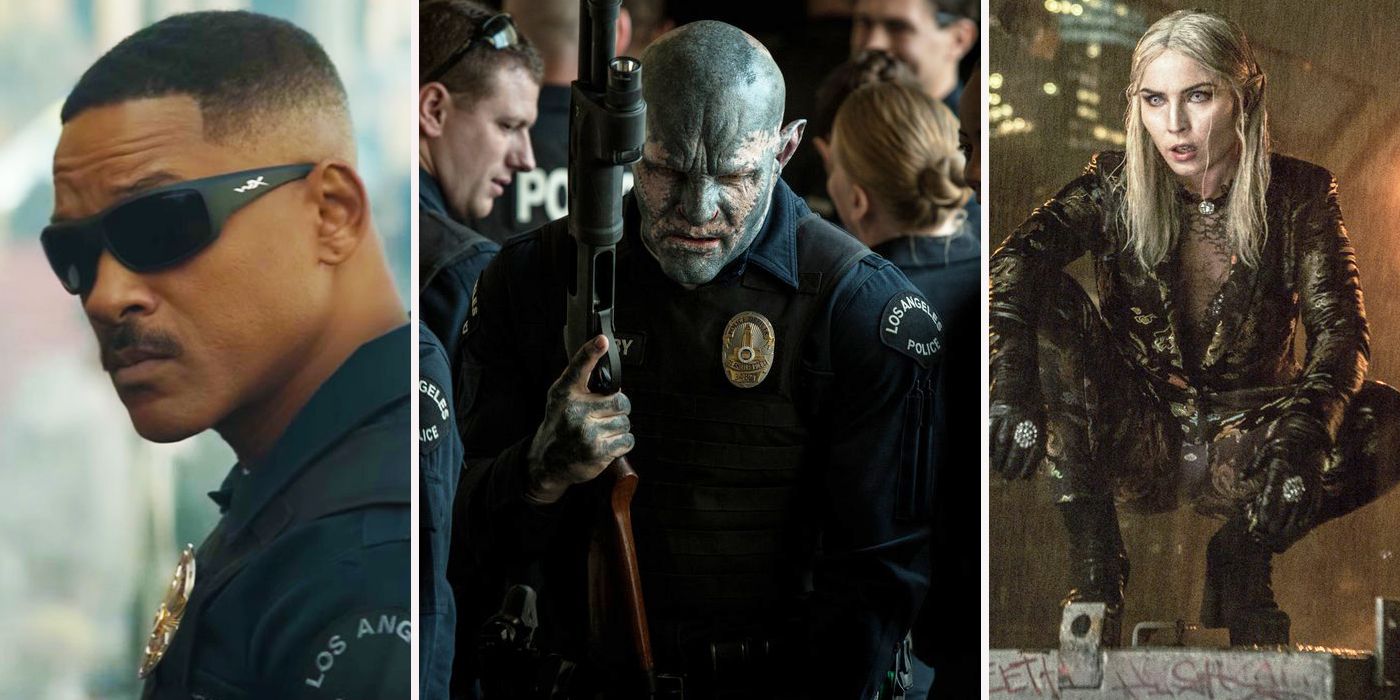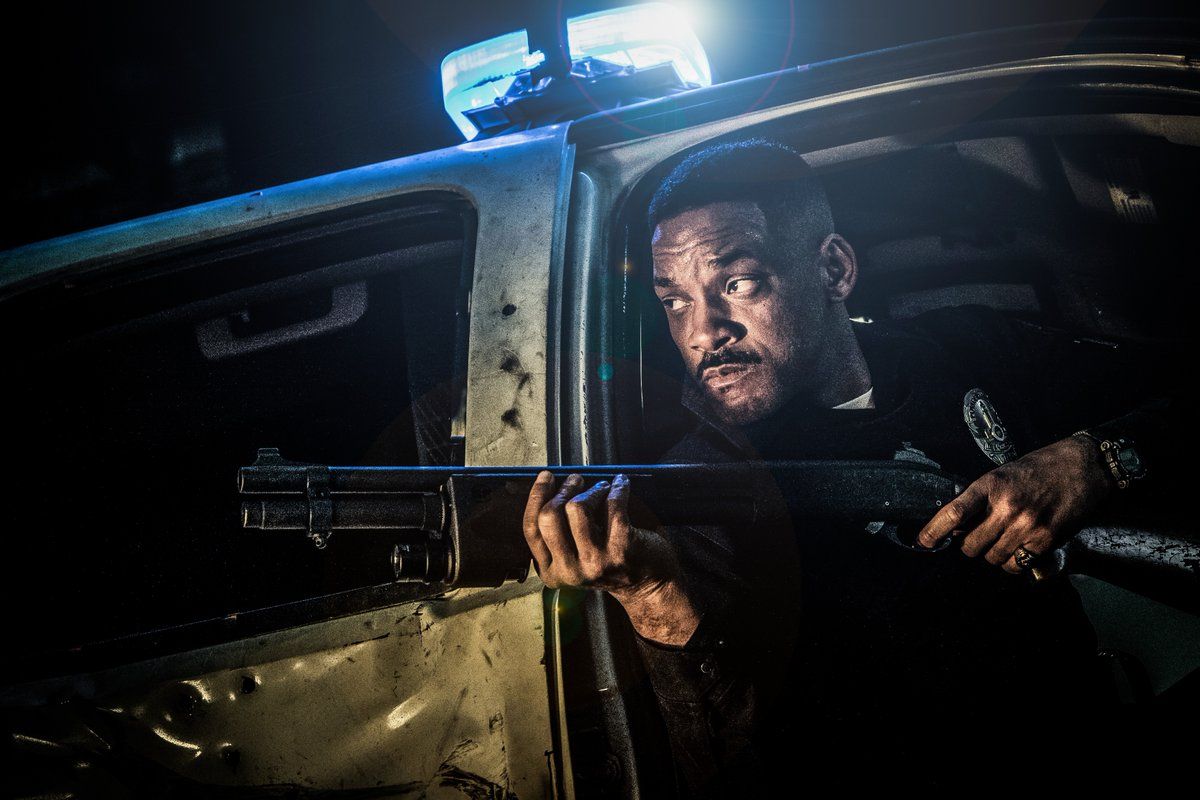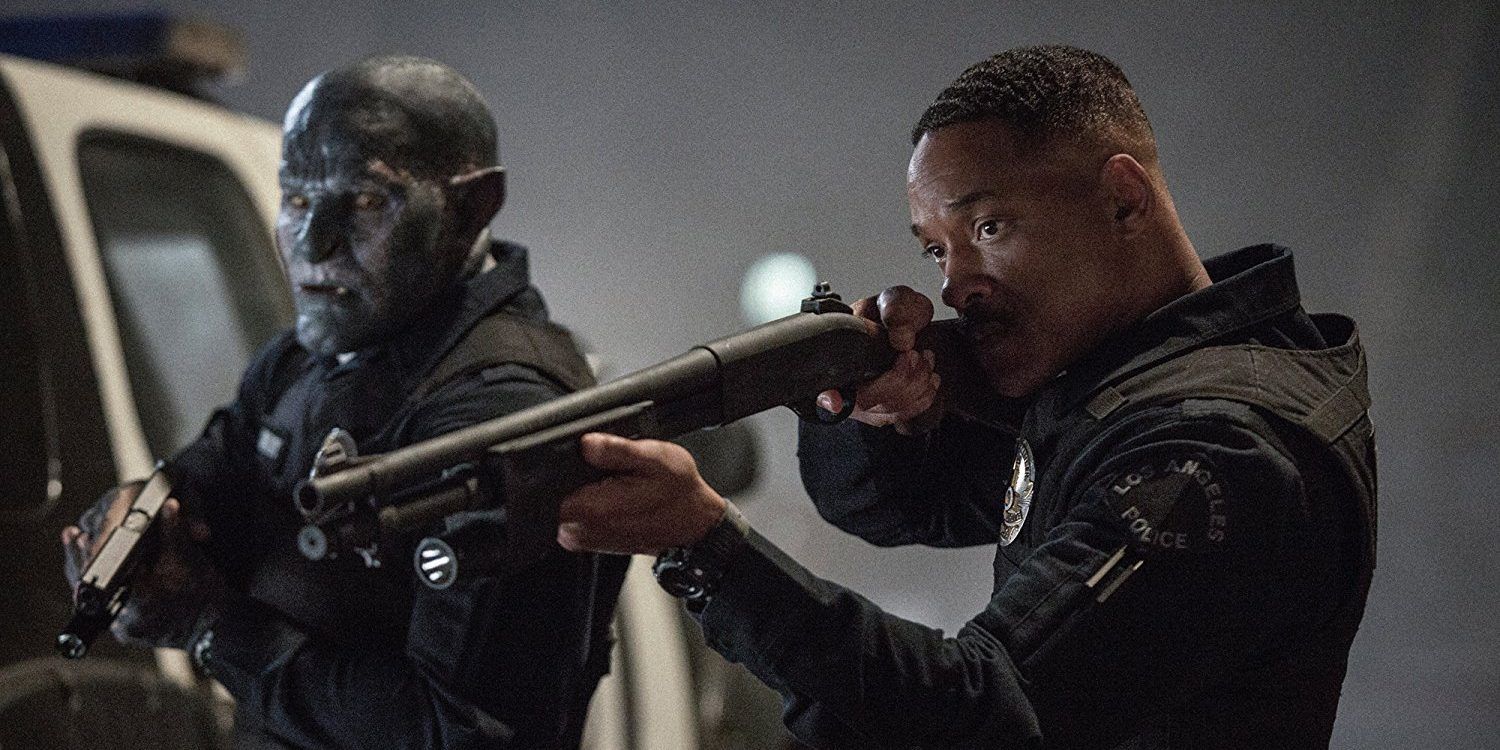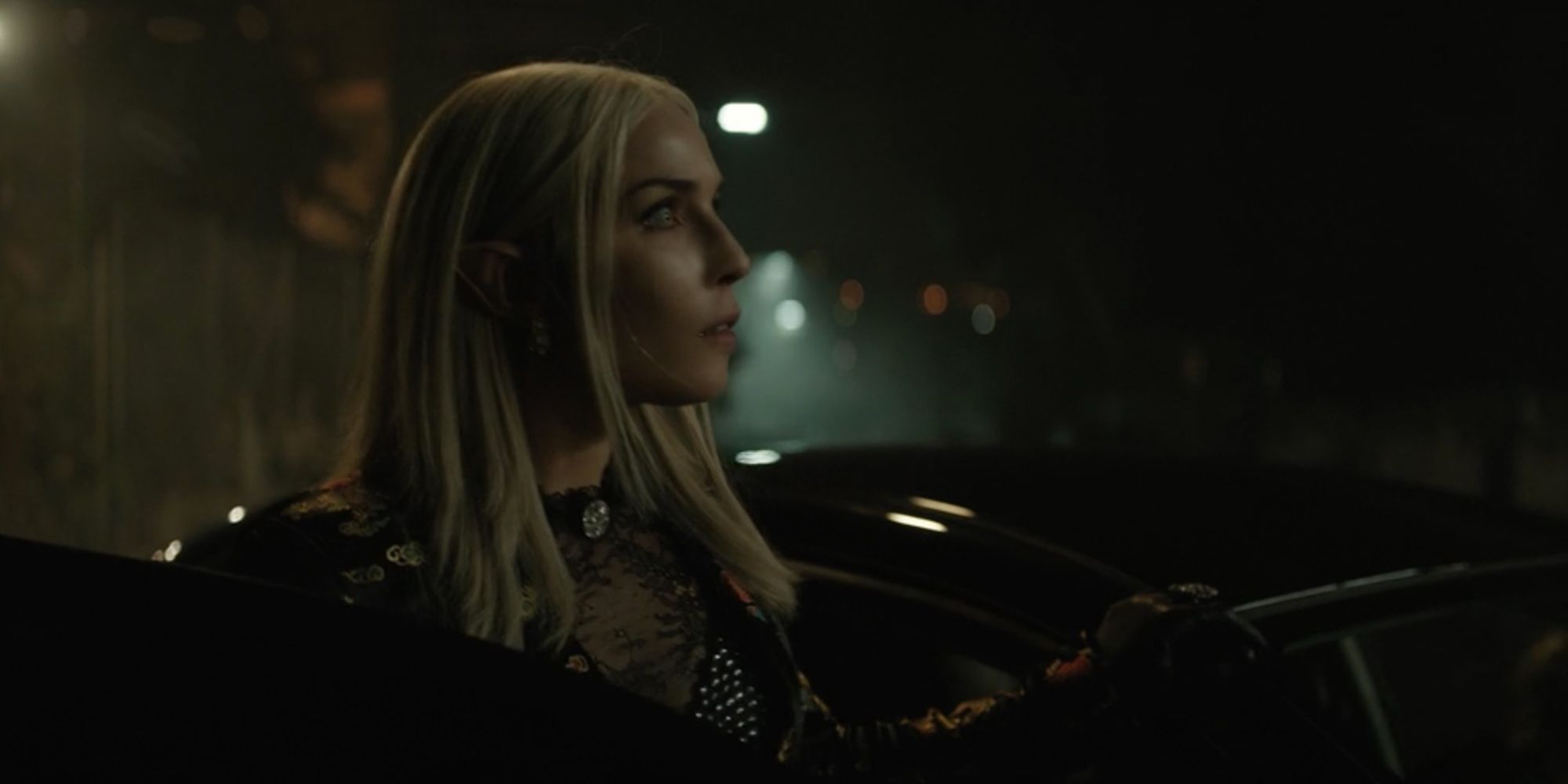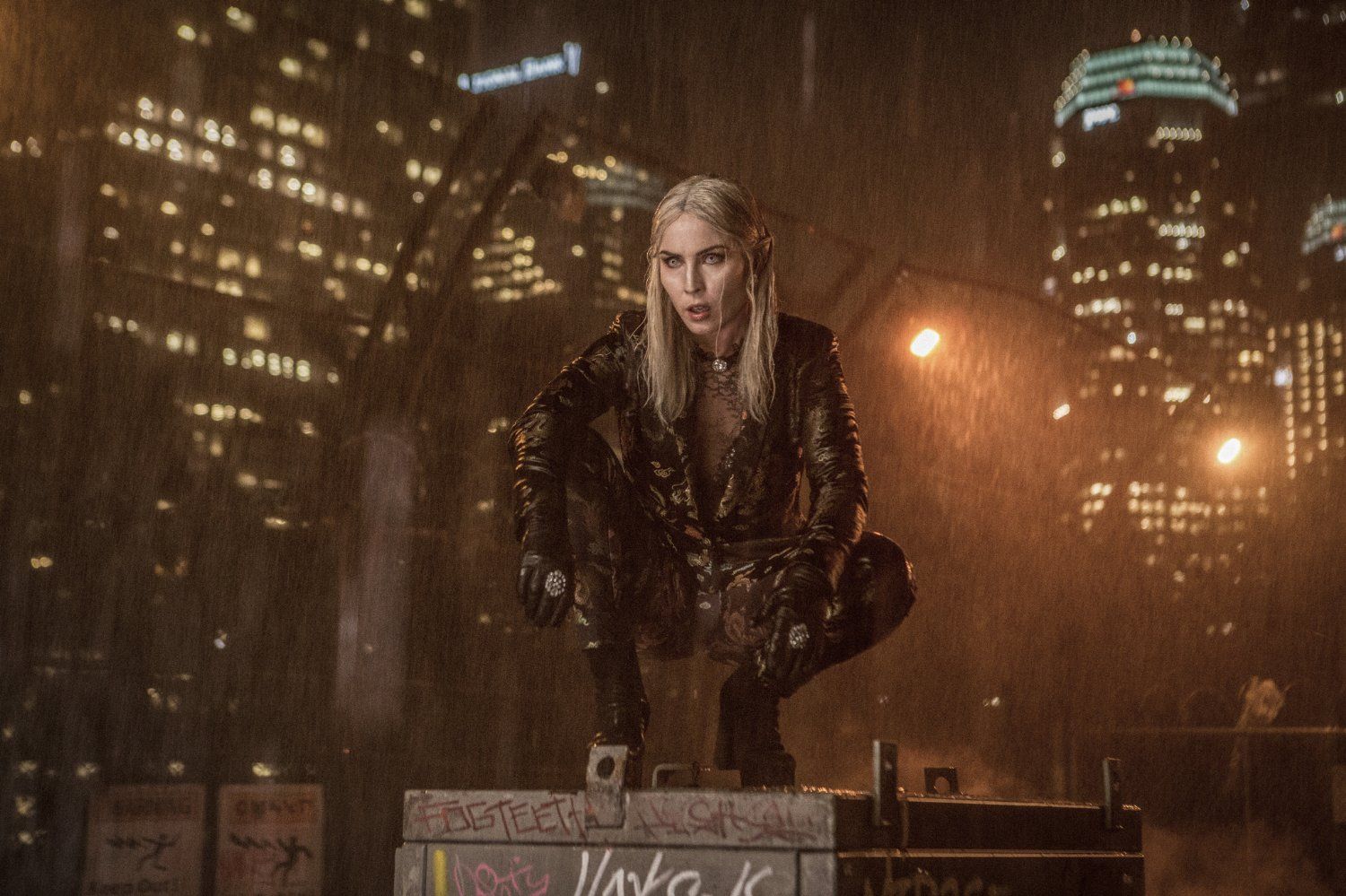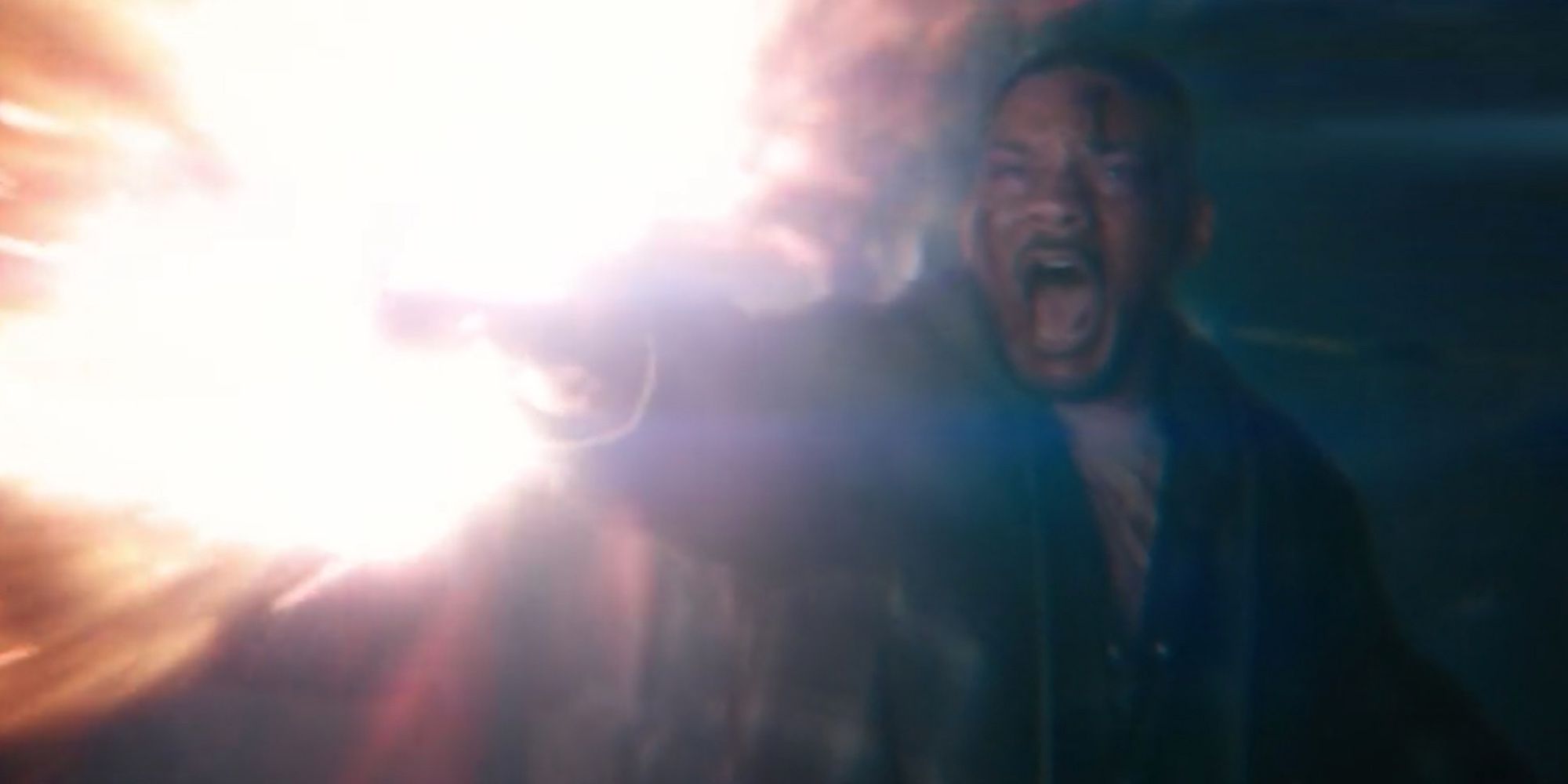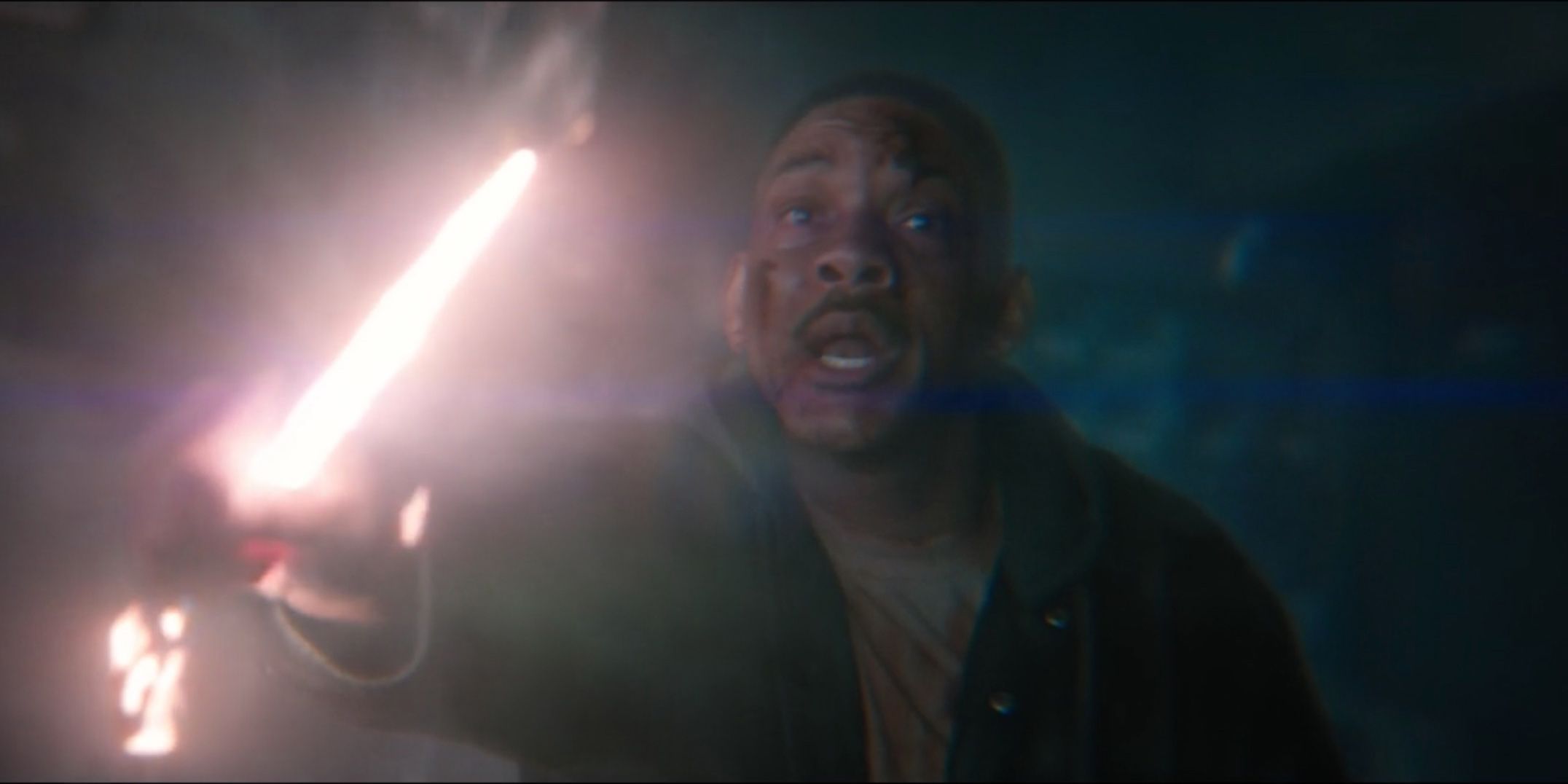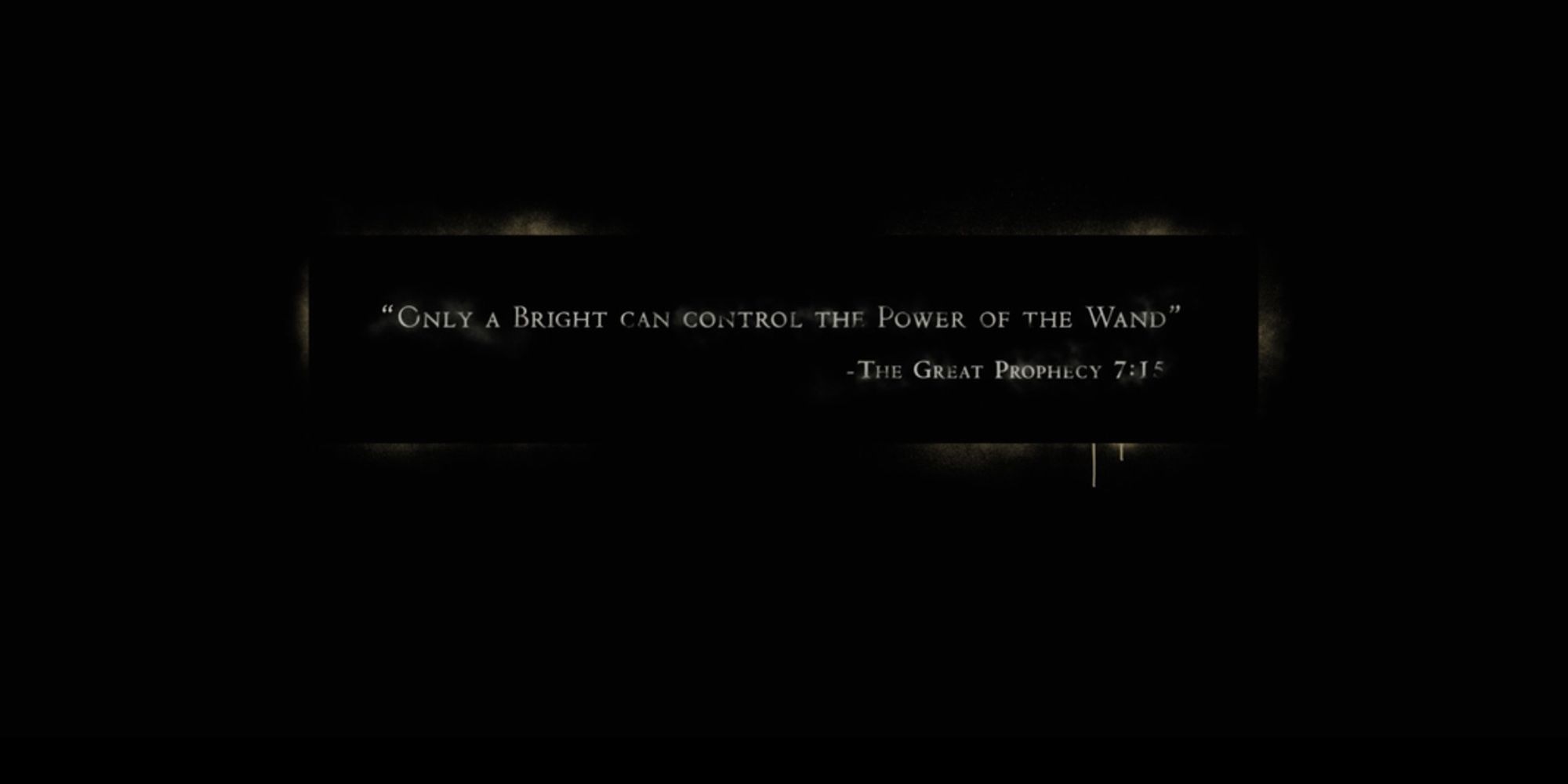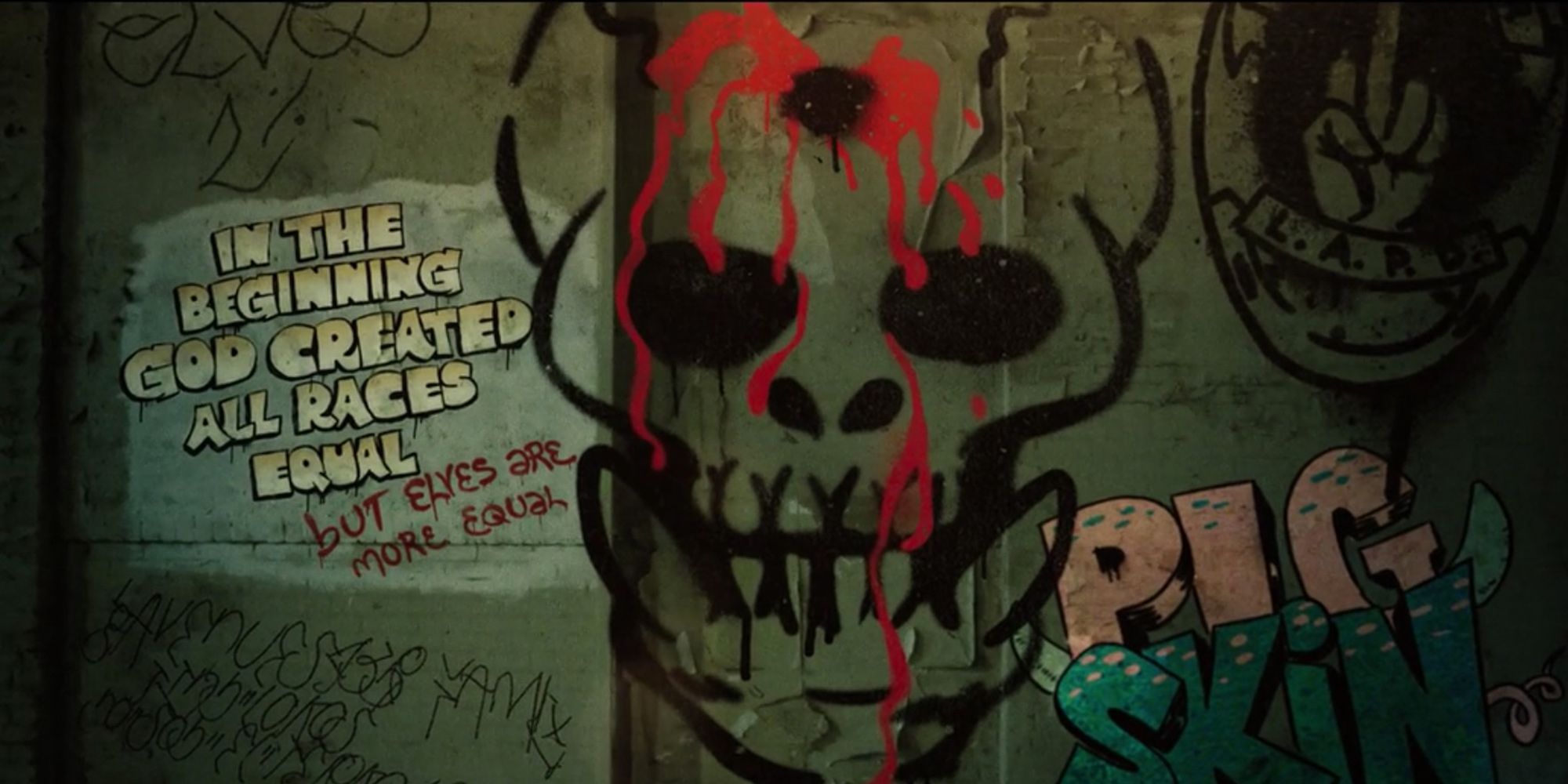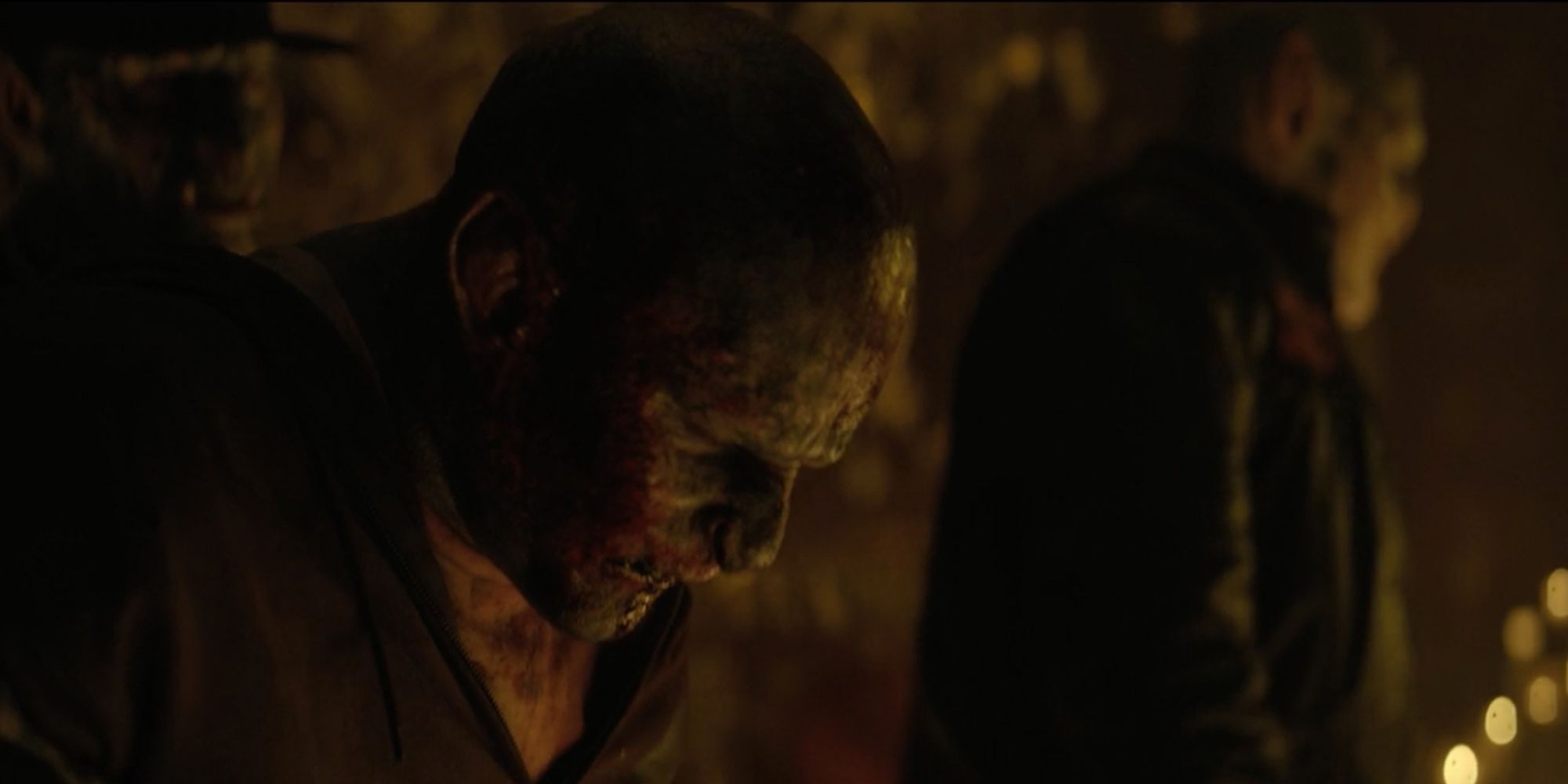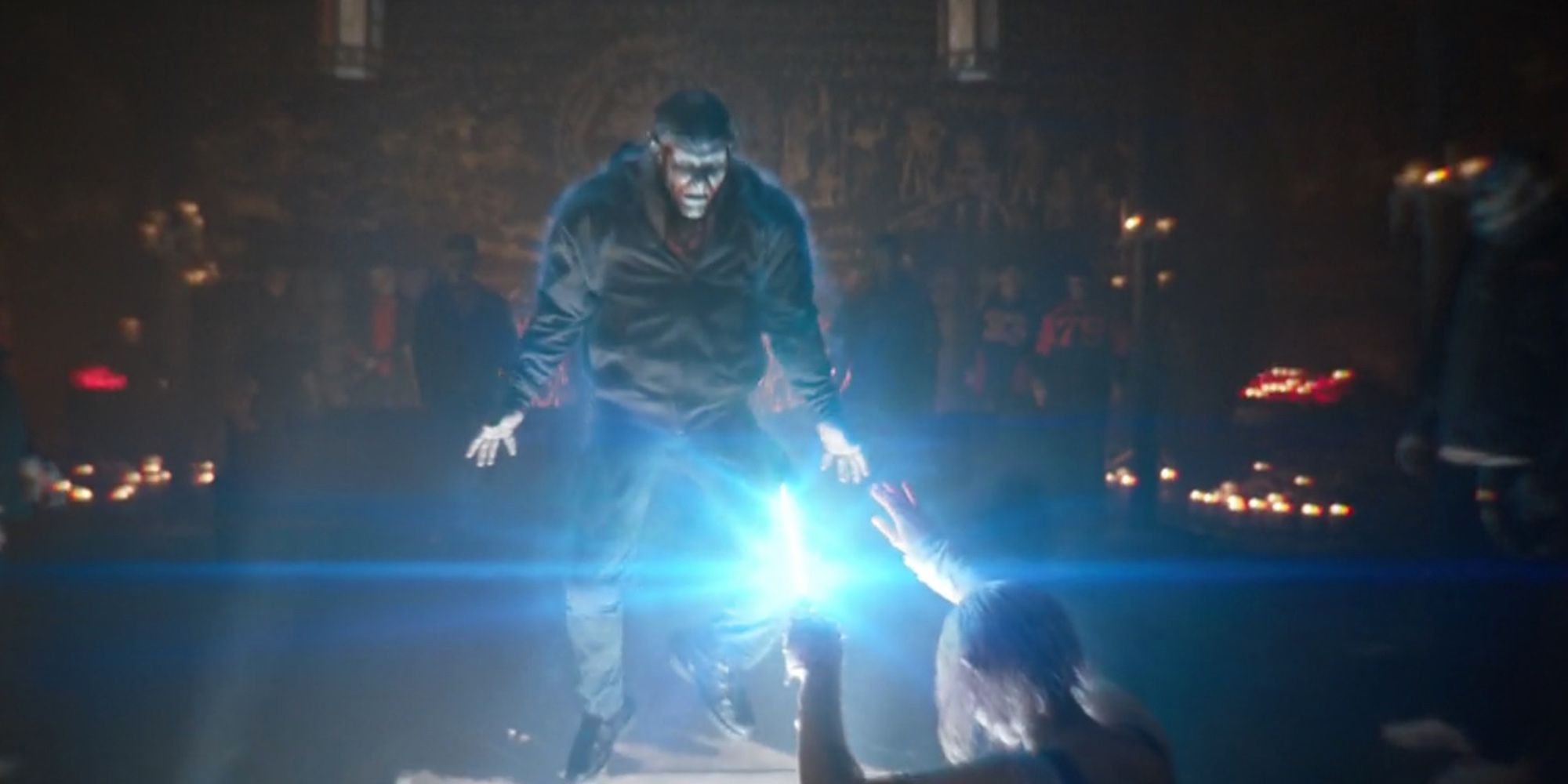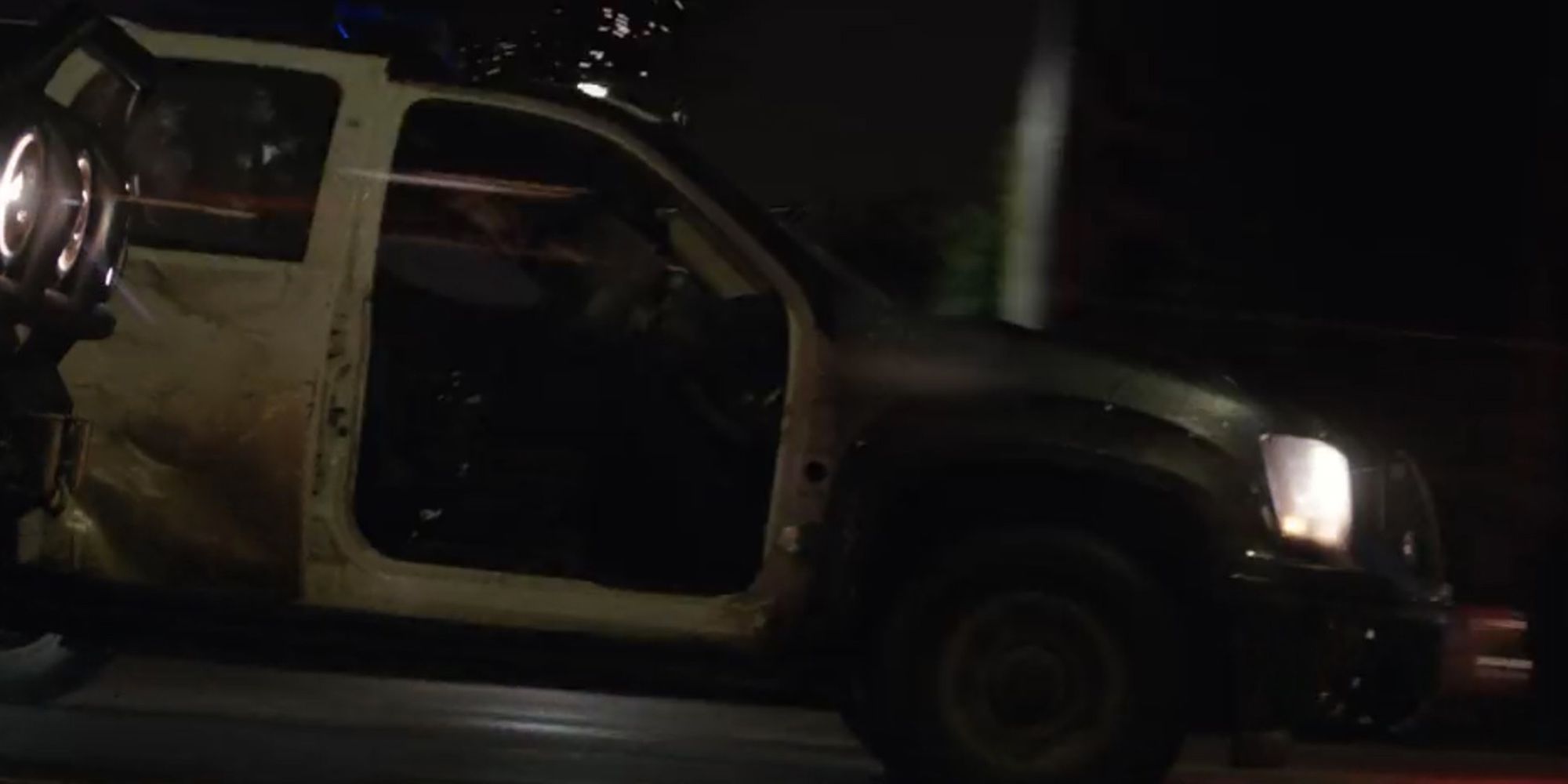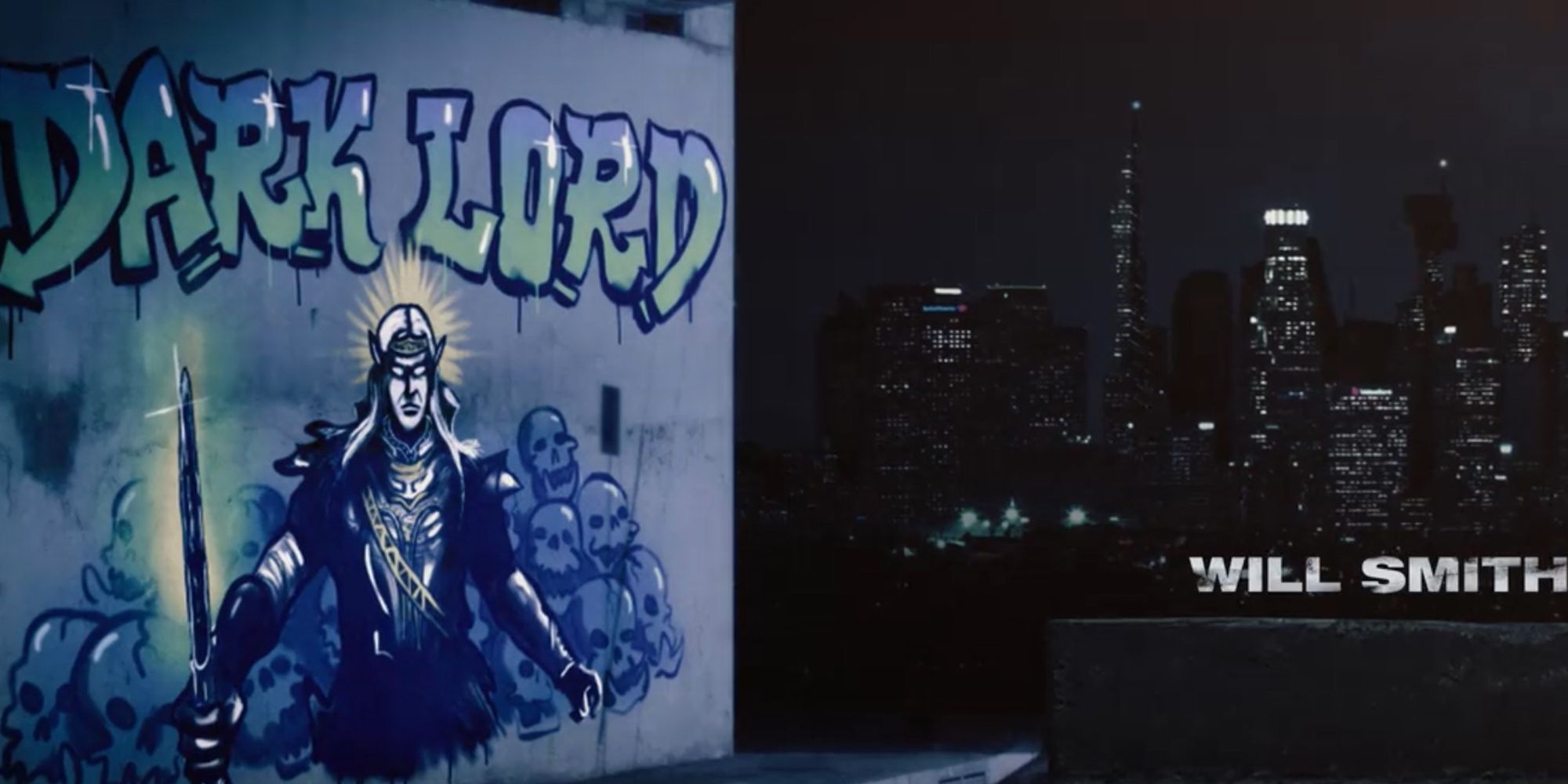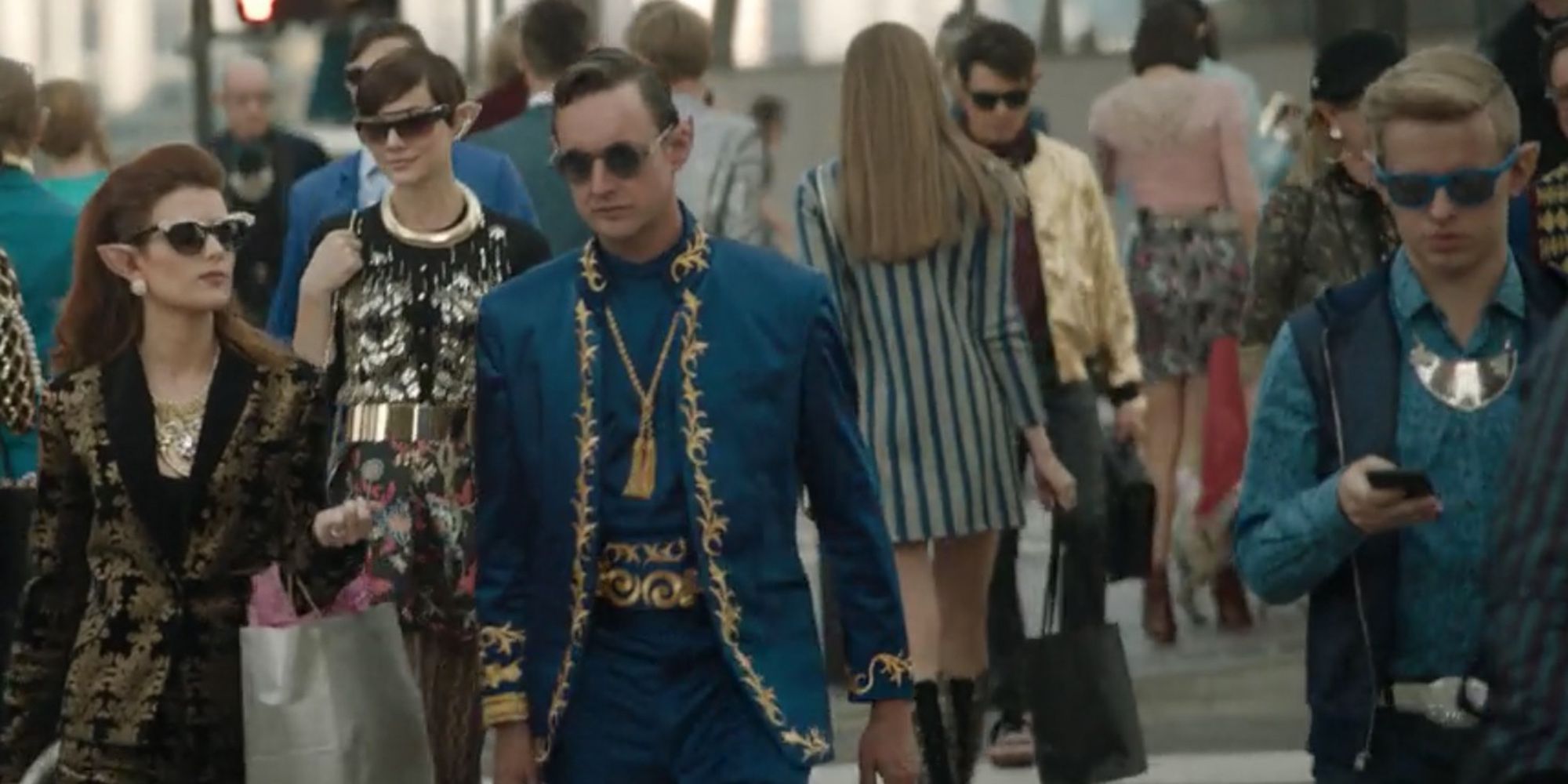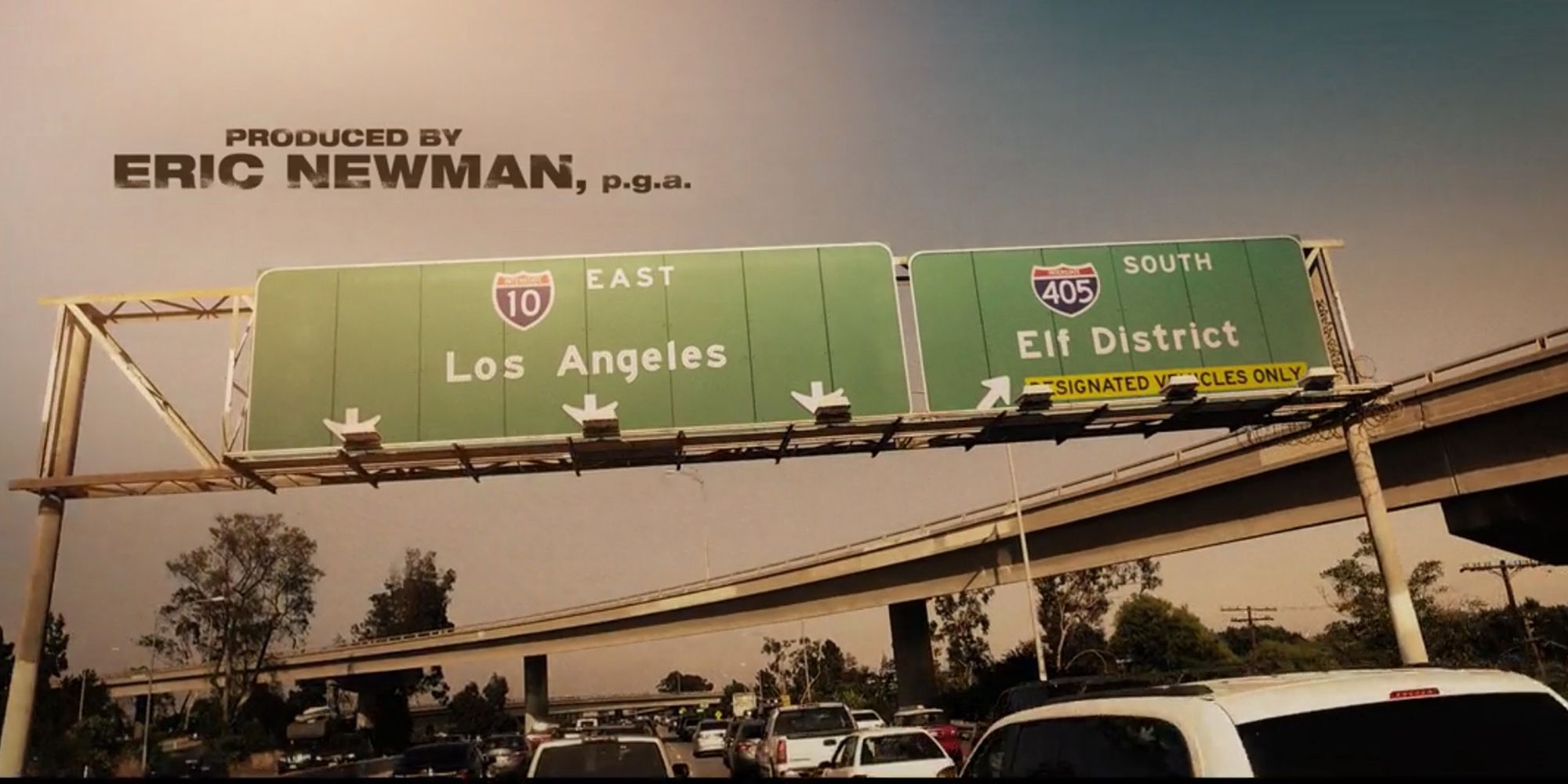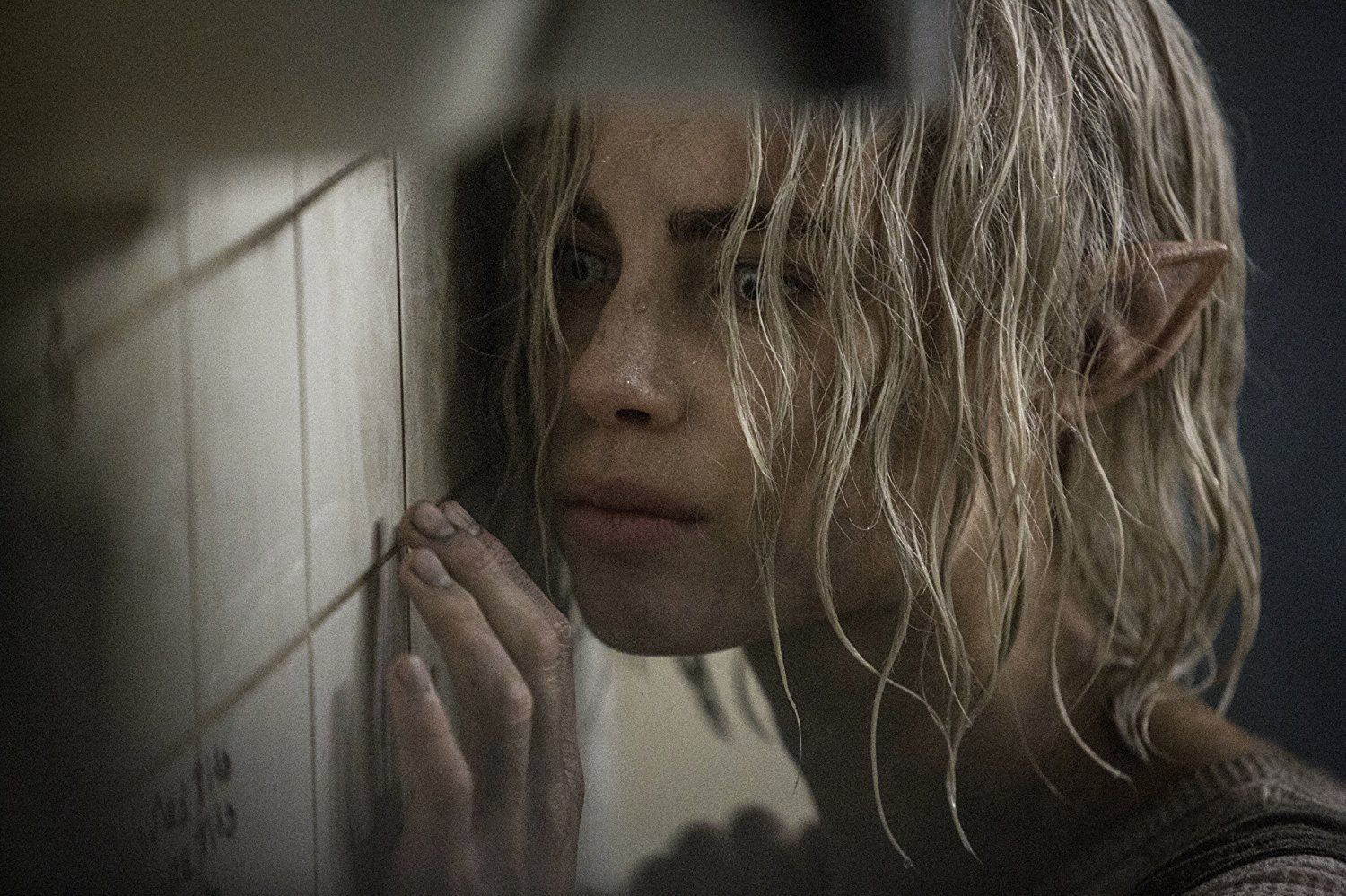Bright, Netflix's most expensive feature to date and its first real foray into the major fantasy market, has become one of the more divisive films of 2017. Some reviewers have gone so far as to call it the worst film of 2017 and a frightening harbinger of what to expect from a studio like Netflix, the business model of which allows for more artistic freedom than one that's more dependent on reviews and box office performance. But there are those who've called it an ingenious achievement in cross-genre fare.
When a film incites this kind of extreme opposition, that usually means there's truth to both sides. Bright is an incredibly ambitious attempt to tell a new kind of fantasy story, but it also has serious execution problems. Unsurprisingly, David Ayer (Training Day, End of Watch) manages to convey a healthy helping of gritty realism to the cop drama side of the story, and the fantasy elements of Max Landis' script are superficially intriguing, but in the end, whether or not the two actually merge together in a balanced way is up for serious debate. So, we gathered together a list of 15 things that stood out about Bright -- seven in a positive way and eight in a not so positive way. Interestingly, nearly everything on this list appears in both columns at some point or another
15 LOVED: WILL SMITH
If there's one thing high fantasy doesn't do very well, it's crack jokes. Most stories in the genre deal with stakes so high and so dramatic that they don't house much humor beyond the benign buddy comedy that goes on between Pip and Merry in the Lord of the Rings and Tyrion and Varys in Game of Thrones, both of which are far from current. But Bright's cross-genre nature allows for some more cutting edge comedy -- enter: Will Smith.
Most of Bright's comedy comes from Will Smith's injection of sardonic, annoyed reactions at the events that surround him. Said comedy gives a voice to the legions of audience members that enjoy genre entertainment, but can't stop themselves from pointing out its ludicrous implausibility.
Daryl Ward: We're not in a Prophecy, all right?
Nick Jakoby: How do you know?
Daryl Ward: We're in a stolen Toyota Corolla.
14 HATED: WILL SMITH
Okay, yes, Will Smith is funny -- for the first 20 minutes. Then his annoyed, cynical schtick starts to wear very thin. Presumably he's the protagonist, but he's miserable in his job, can't seem to stand anyone around him and constantly abuses his well-meaning partner. It isn't until Jakoby actually dies that he softens toward the Orc, but at that point, it's too little, too late.
Ward's jokes are usually aimed at Nick, and while Nick's eternal good nature is its own brand of exasperating, it doesn't compare to Ward's endless Oscar-the-Grouch routine. And it's not that Ward's negativity isn't understandable, but when it's only manifested in smart-ass humor it gets old quickly. It makes the non-revelation that he's a Bright even more eyeroll-worthy.
13 LOVED: NOOMI RAPACE
Why Noomi Rapace doesn't have her own vampire/evil elf franchise under her belt at this point is beyond us. The Swedish actress burst on the scene with her inimitable performance of Lisbeth Salander in the original adaptation of The Girl With the Dragon Tattoo series. No one does icy, murderous rage quite like her, so she's a natural fit for the single-minded, fanatical Leila, hellbent on getting her wand back so she can raise her Dark Lord once more.
Rapace's white blond hair and neon blue eyes paired with the intensity of her performance almost make her seem crystalline, so otherworldly she might crack under her own electricity. In a world where elves are already the most powerful creatures on the planet, the prospect of an evil one is truly terrifying. Rapace is the perfect vessel for this woman.
12 HATED: NOOMI RAPACE
For all the brilliance of her casting and performance, Noomi Rapace is virtually and criminally wasted in Bright. She spends the first two thirds of the movie glaring at the camera as she tries decidedly un-sophisticated ways of finding her wand and getting it back. Then, after she's finally allowed to stretch her legs and become reasonably scary, she dies. This happens literally the minute after we find out she's a principle character's sister.
There's nothing quite so frustrating as watching a performance with the potential to become exciting (or just interesting) never reach that potential. Villains generally have less work to do when it comes to staying entertaining, but the best villains have depth. Hiring a powerhouse like Rapace and then putting her in the shoes of someone like Leila with a provocative backstory, only to almost completely ignore that backstory before killing her was galling to say the least.
11 LOVED: WARD IS A BRIGHT
Ward spends most of this movie in a cynical, angry, hateful fog. He's basically at his job so he can collect a pension, but he can't ignore the fact that the job might kill him before he can collect the pension. He's surrounded by people he either despises or disappoints, and the disillusionment he feels is palpable. His depression is actually one of the character's only saving graces as we watch him endlessly torture Nick.
So, when he's revealed as one of the one in a million humans who can touch a wand without immediately de-materializing, it restores his faith and a bit of ours, too. Also, despite the fact that he's clearly the protagonist, Ward is also the most out of place character both in the movie and his own life. LA cops (especially in David Ayer movies) don't turn up in fantasy -- that makes Ward an exciting pioneer.
10 HATED: WARD IS A BRIGHT
If you didn't realize Ward was a Bright by minute one, we weren't watching the same movie. The only twist more obvious was Nick eventually getting saved by the Orc kid he helped to avoid the police and that was only because it was a blatant rip-off of a twist in Training Day. Don't get us wrong -- it was pretty spectacular watching Ward wield his power for the first time, and, frankly, the only part of the sequel we're excited for is seeing the cop exercise his sense of humor in exploring his new abilities.
But jiminy Christmas, his reveal could've been a little less telegraphed. Unfortunately, a load-bearing premise of the movie is that only one in a million humans is a Bright and the only way to see if you are one is to touch a wand and not explode, so it had to be dealt with.
9 LOVED: PREMISE
Earlier this year, Westeros: The Series appeared on YouTube and Thrones fans salivated over the sleek, modernized version of their favorite medieval fantasy. There's nothing quite so tantalizing as when our fantasies brush up against our reality, even if the practicalities of such a universe blend would be terrifying. Bright borrows heavily from Lord of the Rings in its world-building and magical population -- Christianity's been replaced with the story of nine races that united to defeat "the dark lord."
Nick's people, the Orcs, weren't on the right side of that fight, so racism and prejudice have followed their race ever since. While it's not an explicit (or licensed) continuation of Lord of the Rings, it's a tantalizing look at what could happen as a magical world moves into modernity when it's filled with conflicting races, only a few of which have the mastery of powerful magic.
8 HATED: PREMISE'S EXECUTION
Turns out if you mash-up Training Day and Lord of the Rings with all the delicateness of a Harley Quinn mallet, you're going to get a mess. Bright featured spectacular missteps at every level of its own narrative, from the unwatchable relationship between Ward and Nick to its lame attempt at relevance through a poorly executed racial metaphor to the half-baked world building that pollutes its own universe.
This film tries to do so much that it winds up succeeding at virtually nothing. It's not a good police drama, it's not a good social justice story and it's a piss-poor attempt at fantasy. The characters are either unlikable or treacly, the plot is utterly predictable, and, at the end of the day, it tries to fool us into thinking it has resonance while clearly all it's really doing is setting up Netflix's entrée into the fantasy franchise scene.
7 LOVED: NICK'S DEATH
Nick Jakoby hasn't had it easy. Growing up as an unblooded orc from an unblooded family, he didn't fit in with his own kind, and he certainly didn't fit in with anyone else considering this world's opinion of orcs. Putting himself on the front line of that conflict by becoming a police officer was a brave and noble choice, and his utter lack of guile and cynicism in the face of his daily life is truly endearing.
When he dies at the hands of another orc who refuses to see his value, it's one of the most effective moments in the film. Granted Nick's eternal niceness in the face of Ward's near constant abuse starts to become pretty implausible (and so, sooooo annoying) by the end of the film, his death makes up for it a little bit.
6 HATED: NICK'S RESURRECTION
The most resonant moment in the entire film is completely undercut barely a minute later when Tikka literally uses a magic wand to bring Nick back to life. Not only is it an unimaginative solution, it's an unnecessary one, as well. Nick's death is the first time the movie does something daring beyond its premise, and it's the first time we see anything beyond boredom or anger from Ward.
Granted, Nick's death as motivation for Ward to take up the banner and go on the hero's journey we all know he's headed toward (there's a sequel, did you hear?) is less than original, but at least it was something. Without Nick's death to push Ward to pursue his destiny as a Bright, it's even more unbelievable he'd do anything but take his family flee the city the minute his injuries healed.
5 LOVED: THE ACTION
The first half of Bright is a legitimately exciting ride as Nick and Ward try and puzzle out the mess they've landed themselves in. As soon as they find themselves with the wand and Tikka, they're set upon by cops, Inferni and gangsters. This results in one of the better car chases in recent memory. It dwells in the perfect balance of realism and implausibility where all good action sequences should lie. TL;DR -- it was really, really cool when Ward takes a door off his own car on purpose.
Also, this is where we get to see what the Inferni are capable of both physically and supernaturally. The fight scenes are shot so we can actually see their martial arts prowess as opposed to having the camera jump around so much we never get a clear shot of their movements, just their effects.
4 HATED: THE MISSPENT BUDGET
It's been widely (and perhaps stupidly) publicized that Bright's budget was $90 million, making it the most expensive feature produced at Netflix to date. The thing is... you really wouldn't know it to look at it. While a large budget doesn't necessarily (or ever?) translate to quality, it usually translates to high production value. This wasn't the case for Bright at all.
The opening credits looked more reminiscent of Riverdale or Runaways, further cementing the idea that David Ayer thinks fantasy is essentially immature, and the rest of the budget appeared to be spent on the wand, a murder tableau straight out of Hannibal, an underground treehouse and a floating orc. It's not that the film looks cheap, per se, it's just that when you consider the lack of special effects and the fact that it cost only $50 million less than Wonder Woman with a considerably cheaper cast, one wonders where the money went.
3 LOVED: MAGIC AS COMMODITY
One of the reasons J.K. Rowling's wizards remain shrouded in mystery from the Muggle world that surrounds them is that, presumably, if non-magic folk (who vastly outnumber wizards) knew about magic, they'd root it out in whatever way they could, salivating over it like Bright's dirty cop, Pollard, and gang leader, Poison. Because that's what a society still plagued by poverty, illness and inequity would do if there was something out there that could solve all of their problems. That kind of realistic treatment of fantasy is what makes adult fairy tales spin.
Today's genre audiences are savvier than the audiences that walked into Star Wars 40 years ago -- they've had lifetimes to imbibe both good and bad sci-fi/fantasy content, so today's needs to be sophisticated in its treatment of supernatural elements. Bright's treatment of magic as an element that should be heavily regulated is smart, simple and effective.
2 HATED: HALF-ASSED WORLD BUILDING
The world building in this film is shallow and derivative, never convincing us that this Los Angeles is any different than our own aside from what we're seeing play out on screen. In other words, at no point is the audience transported to a world outside their living rooms, despite the tiny shadow of a dragon flying over the skyline and the mind-numbingly unimaginatively-named "Elf Town" that stands in for DTLA.
And on top of that, it's a world that doesn't even obey its own rules. Apparently if a non-Bright human touches a wand, they explode. We see it happen twice, and both times, it's immediate... except when Pollard, Ike Barinholtz's venomous dirty cop, picks one up for a full three seconds and nothing happens to him. Don't worry, though, Will Smith'll make a joke soon that'll make you forget all about that.
1 HATED: TIKKA
Bright is filled to the brim with mysterious and provocative characters that never reach their narrative potential, and Tikka is their queen. She spends the movie looking terrified and blind to the fact that she doesn't really need them if she's a Bright herself. Instead of giving her a backstory that would raise the stakes of Nick and Ward's escapade and give their partnership a real reason to evolve, her identity as Inferni defector and Leila's sister is pushed to the climax.
And despite their police training, Ward and Nick miss the fact that Tikka is in possession of abilities that could help them in their quest to nowhere. She can sense when Inferni approach, and she's clearly responsible for the deaths that draw them into the case in the first place. That would indicate she's in possession of supernatural powers, but the film keeps her useless until it's convenient.

